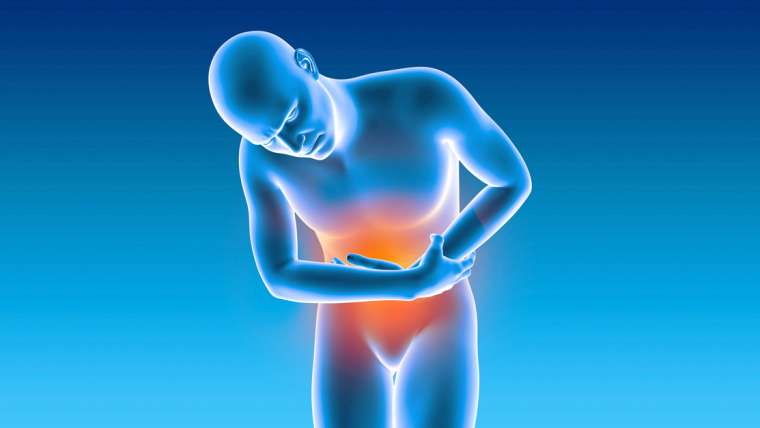
9 Foods That Fight Hot Flashes: A Compassionate Guide to Relief
Table of Contents
Understanding Hot Flashes and Their Impact on Daily Life
Hot flashes, also known as hot flushes, are one of the most common and disruptive symptoms of menopause, affecting many women. They are characterized by sudden waves of heat, often accompanied by sweating and discomfort, and can interfere with daily activities, sleep, and overall quality of life. While hormonal changes during menopause are the primary cause of hot flashes, various factors like diet, stress, and lifestyle can influence their frequency and intensity. In this article we’ll discuss the type of foods that fight hot flashes and help women to deal with this issue during their menopause in this article.
The Role of Diet in Managing Hot Flashes: Why It Matters
Nutrition plays a critical role in managing hot flashes. Certain foods can help balance hormones, reduce inflammation, and alleviate the discomfort associated with these menopausal symptoms. By incorporating these foods into your diet, you can promote overall well-being and reduce the severity of hot flashes.
9 Foods That Fight Hot Flashes:
1. Soy Products: Nature’s Answer to Hormonal Balance
Soy is rich in isoflavones, a type of phytoestrogen that mimics estrogen in the body. Phytoestrogens help mitigate the hormonal fluctuations that cause hot flashes. Common soy products like edamame, tofu, and soy milk can be incorporated into your meals to provide relief. Aim for one to two servings per day for the best results.
2. Flaxseeds: Tiny Powerhouses of Nutritional Goodness
Flaxseeds are loaded with lignans, another form of phytoestrogens, and omega-3 fatty acids. These compounds help regulate hormone levels and reduce the intensity of hot flashes. Ground flaxseeds are easy to add to smoothies, oatmeal, or baked goods, providing an extra nutritional boost. Consuming about two tablespoons daily can significantly help alleviate symptoms.
3. Cold-Water Fish: Supporting Hormonal Balance
Cold-water fish such as mackerel, salmon, and sardines are rich in omega-3 fatty acids, which have anti-inflammatory properties. Regular consumption of these fish can help support hormone balance and decrease the severity of hot flashes. Aim to incorporate these fish into your diet a couple of times a week to experience their full benefits.
4. Leafy Greens: Nutrient-Rich and Hormone-Balancing
Dark leafy greens like spinach, kale, and Swiss chard are packed with essential nutrients like vitamins A, C, and K, as well as calcium, which supports bone health. These vegetables also help regulate blood pressure and promote hormonal balance. Including at least two servings of cooked leafy greens daily can help combat hot flashes.
5. Nuts and Seeds: Essential Sources of Healthy Fats and Nutrients
Nuts and seeds are rich in healthy fats and vitamin E, both of which have been shown to reduce the frequency and severity of hot flashes. Almonds, walnuts, and sunflower seeds are excellent options that can be easily incorporated into snacks or meals. Including a handful of nuts and seeds in your diet each day can support hormonal balance during menopause.
6. Whole Grains: Comforting and Blood Sugar-Stabilizing
Whole grains such as oats, quinoa, and brown rice are high in fiber, which helps stabilize blood sugar levels. Fluctuations in blood sugar can trigger hot flashes, so consuming whole grains may help reduce their frequency. Whole grains also provide sustained energy, making them a valuable part of a balanced diet during menopause.
7. Fruits: A Delicious Way to Combat Hot Flashes
Many fruits, especially berries, apples, and citrus fruits, offer a wealth of nutrients that can help alleviate hot flashes. Berries are packed with antioxidants that reduce inflammation, while apples provide quercetin, a natural anti-inflammatory. Citrus fruits like oranges and grapefruits are rich in vitamin C, which plays a role in hormone synthesis and immune function.
8. Avocados: Nutrient-Dense and Hormone-Supportive
Avocados are rich in healthy fats, fiber, and vitamin E, which can help reduce inflammation and balance hormones. They also contain potassium, which helps regulate blood pressure and maintain electrolyte balance during menopause. Adding half an avocado to your meals several times a week can support overall comfort and hormonal regulation.
9. Herbal Teas: Soothing Beverages to Ease Discomfort
Herbal teas, particularly those made from chamomile, peppermint, and black cohosh, can have calming effects on the body and may help reduce the discomfort associated with hot flashes. Chamomile and peppermint teas are known for their relaxing properties, while black cohosh has been used traditionally to alleviate menopausal symptoms. Before incorporating black cohosh as a supplement, it is important to consult with a healthcare provider.
So, here is our list of foods that fight hot flashes in your body. By incorporating these foods into your daily routine, you can better manage them and improve your overall well-being. A diet rich in phytoestrogens, healthy fats, fiber, and essential vitamins and minerals can help balance hormones, reduce inflammation, and provide natural relief from hot flashes. Remember, these dietary changes should be part of a holistic approach to menopause, including regular exercise, stress management, and adequate sleep, to ensure optimal health and comfort.
Resources:
- Medline Plus about Menopause
- Cleveland Clinic – Hot Flashes: Triggers, How Long They Last & Treatments



